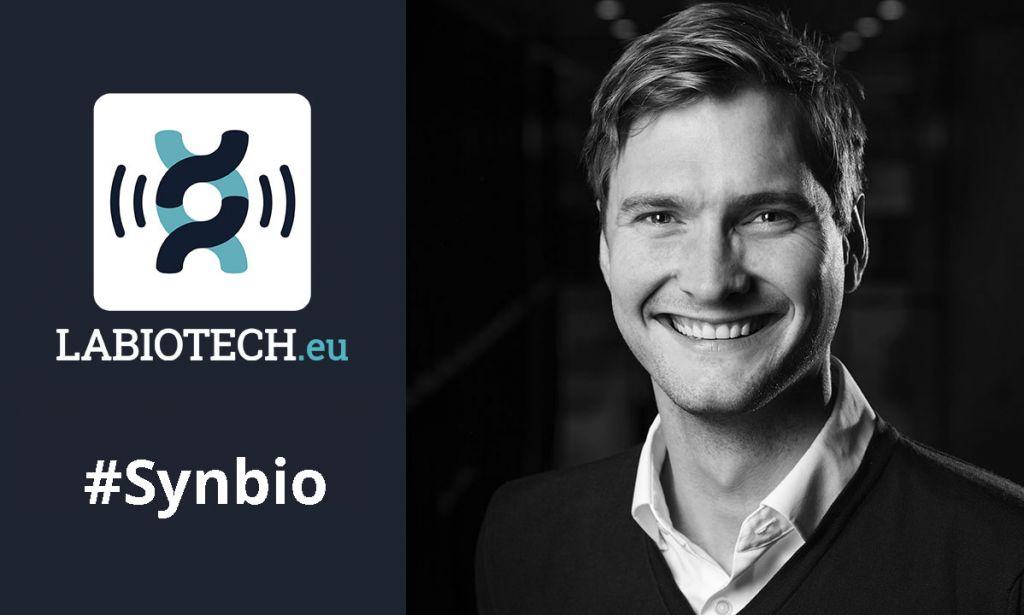Philip sat down to chat with Professor and serial entrepreneur Morten Sommer about his career in the second Labiotech Hangout.
At 35, Morten Sommer is not only the youngest full professor ever in Denmark but also the entrepreneur behind a number of synbio-based companies. For Labiotech’s second Hangout on June 29th, Philip probed his thoughts on academia, entrepreneurship and finding a way to balance tandem careers on these paths.
While earning his PhD in George Church‘s lab at Harvard, Sommer co-founded his first company, Microlytic in 2006, which has since been acquired by Anatrace. He also co-founded two others, Antibiotix and Biosyntia. When Philip asked about his motivation, Sommer said, “It’s an interest that I’ve had for a long time — I’ve always been entrepreneurially inclined. I’ve been working on business plans, and when going into science, this is something that stuck with me.”
“It can be hard to translate [academic research] into something that can have a greater impact on society and I think that being able to start a company to help bring forth some of that research and those ideas to more tangible things,” he continued. “I think that’s very motivating and something that is good for academic people to get more out of the research that we do.”
Despite this successful run as an entrepreneur, Sommer is committed to remaining in academia. He now supervises a group of more than 20 people at the Technical University of Denmark (DTU), which studies microbiology and bacteria via synthetic biology and industrial biotechnology. So why did he stay in academia?
“I personally also really enjoy the flexibility and freedom that is allowed by an academic career,” he said. “I think that allows me to explore things without necessarily having to think about the commercial implications of a given research. I think that freedom is very valuable, and I can still contribute to those companies.”
When Philip asked about the toughest challenges for entrepreneurs and if he had any advice, Sommer said there were many, but “First and foremost, you need good people…You will meet lots of challenges so you need to be able to work well with those people [to overcome them].”
Indeed, these people define the existence of the company: “There isn’t the company before you find the right people,” said Sommer. Further, he also enjoys having at least one co-founder off of whom he can bounce ideas.
He met Biosyntia co-founder Hans Genee, who pitched the company last November at Refresh, “a more traditional way,” as Genee was a PhD student in Sommer’s lab at DTU. In contrast, Sommer found his partner in Antibiotix, Rasmus Toft-Kehler, through a joint educational program to promote bioinnovation between the business school and DTU. “Antibiotix was initially founded more to address the issue of antibiotic resistance rather than an academic project,” commented Sommer.
Advancing a career in academia in parallel to a startup is another challenge Sommer highlighted. “It requires a lot of effort [to start a company] and universities don’t necessarily give credit to people who devote time to entrepreneurship,” he told Philip.
“I’ve been fortunate to have a lab that has been going really well that has been able to sustain [itself] quite well,” said Sommer, explaining his success. “Also I think DTU has been very supportive of entrepreneurial activities. In particular, the Center for Biosustainability, where I’m employed, spins out companies as part of its mission.”
Sommer said that this “entrepreneurial mandate” is “a good way to encourage people in academia to spin out companies.” He noted that entrepreneurial communities operate with a “critical mass component,” referring to the mindset that is necessary to translate academic research to commercialization and the follow-on spinouts from the first startups.
Philip noted that Europe has been lagging behind the US when it comes to spinning out companies, but Sommer is optimistic. Noting his students’ efforts to found companies with or without his involvement, he said, “I think [the climate] is changing — there is reason to be optimistic.”
Watch the rest of the interview here!





